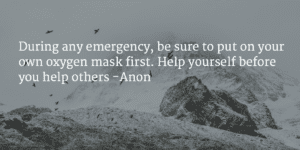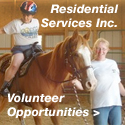Supporting our Children While Caring for Ourselves
Written by: Roni Horak, RSI Clinical Director for Behavioral Health and Counseling Services
Everyone struggles in their own way, and we always view the world from our own lens. When we experience challenging moments and traumatic events, we naturally react and respond in different ways as well. Through the aging process, we also develop tools and coping mechanisms based on our past traumas, triumphs, and life experiences.
Have you ever noticed that when you are around calm people you feel calm? Similar emotional exchanges can occur with stress, anxiety, and frustration coming from others, and we may respond in the same way. Young people are no different in this. While children have the ability to experience a range of emotions and challenges just like adults, they may rely more on changes in behavior and emotional dysregulation to express their feelings.
Helping children during this time can be challenging, as we are also attempting to understand what’s going on around us and trying to maintain balance. Parents will make more progress by taking care of themselves and by “putting their oxygen mask on first” so that they can take care of others. In my practice, I often use metaphors to help us understand concepts, and this is one I find particularly helpful. I know there are parents out there trying to manage these sudden and drastic changes to our everyday life, so there is no better time to make sure you put your “oxygen mask” on first right now. Allow yourself some grace during this time. I know that things have changed in so many ways and you’re suddenly cooking more meals, doing more cleaning, helping your children with eLearning, and spending long hours at home. So, to all the parents out there: you are amazing and you are doing the best you can, so remember to be patient with yourself. It’s also important to extend that patience to the children in your life who may be struggling to understand everything that is going on in the world right now.
A round of applause for all of the young people who have been through so much this year and continue to push through. They are staying in more, they are away from friends and loved ones, they have new routines and rules, and so many other changes that they may not understand fully. Children can be extremely resilient but every day our little humans are experiencing this right along with us.
Things to watch for during this time:
Here are some things that can indicate anxiety, fear, stress, and confusion in children:
- Excessive crying or irritation
- Returning to behaviors they have outgrown
- Excessive worry or sadness
- Unhealthy eating (undereating or binge eating)
- Change in sleeping patterns
- Irritability and “acting out”
- Difficulty with attention
- Decreased concentration
- Avoidance of activities enjoyed in the past
- Unexplained headaches or body pain
- Small tasks appear to be overwhelming
Ways to support children:
- Reassure safety by going over everything that your household is doing to prevent illness such as good exercise, cleanliness, and social distancing.
- Offer to help them look at what they CAN control and let the rest go. Offer to help them look at what they CAN do versus what they aren’t able to do at this time.
- Honor and validate their feelings. Facilitate a conversation about what each family member is feeling during dinner time and share how your family unit will overcome.
- Encourage and model a hopeful attitude. This will pass in time, and our lives are forever changed, so look at the positive aspects this time has provided and will continue to provide for our new future.
- Share tools and coping options such as stretching, tag in the yard, yoga, or writing a letter to a friend or loved one.
- Limit news coverage. We want to stay informed, but excessive coverage may have a negative impact on emotions and increase fear.
- Monitor misinterpretation of news and correct it. Pay attention that comes from organizations like the Center for Disease Control (CDC) and other credible sources.
- Keep a routine (structure your day, take breaks, and maintain a high-quality evening routine that promotes good sleep)
- Find connections in new forms (phone calls, handwritten letters, and video meetings)
- Last but not least for the parents and caregivers, “put your own oxygen mask on first.”
Learn more about Roni’s work at RSI on our Outpatient Counseling page.



